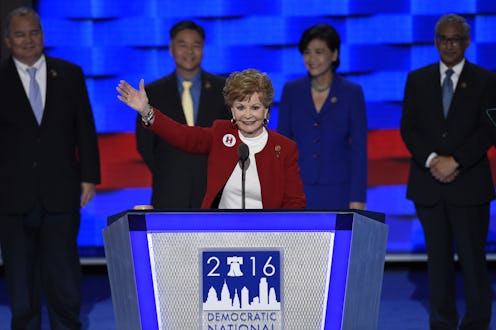News
Do United States Territories Have Electors?
In the weeks prior to Election Day, there is always renewed interest in the Electoral College, and how the mysterious electors who actually cast our votes are chosen. As we pop in our Schoolhouse Rock! cassettes and refamiliarize ourselves with our country's election system, a significant population of Americans still remain excluded from voting. Residents of U.S. territories don't get electors in the Electoral College.
The Electoral College was originally adopted, in part, because our founding fathers thought that the general populace would not be as adept at selecting a president than a chosen group of electors. Each state gets one elector for each representative it has in Congress. So two votes come from the Senate, and then the rest of their votes are equal to however many representatives it has in the House, which is determined by population.
But U.S. territories don't benefit from the same representation as the states. Each of the five U.S. territories — Puerto Rico, Guam, American Samoa, the U.S. Virgin Islands, and the Northern Mariana Islands — have one representative in Congress. They are given representation in the House of Representatives (none in the Senate). But while representation in Congress denotes how many electoral votes the states get, the territories do not get corresponding electoral votes for their representatives. That is because the territories still do not have the right to vote in presidential elections.
The territory representatives have been very vocal about their desire to win voting rights for their constituents. Last year, the five representatives wrote a column in The Orlando Sentinel, pointing out, among other discrepancies, that their residents "have among highest the rates of military service in the nation," yet they still cannot vote for their commander-in-chief.
So what would it take to give territories voting rights? Either statehood or an amendment — like the 23rd Amendment, which gave voting rights to District of Columbia residents.
But it's not only the residents whose rights are restricted. In the House, territory representatives are also extremely limited in what they can do. They cannot vote on bills or any business on the House floor. While they can serve as a voice for their constituents' issues, they are effectively incapable of personally enacting any legislation to serve them.
While the territories can't vote in the election, they do have the opportunity to vote in the primaries. That decision was within the jurisdiction of political parties to decide; it didn't require a legal ruling or federal action. This gets U.S. territories some attention from U.S. politicians for a few months, but once the primaries pass, their issues are too often forgotten.
